
For more than 30 years in his profession as a chef of Cantonese cuisine, Wong Kai-kui, 50, has adhered to a "rooted doctrine" that pork soup is the essence, adding flavor to most Canton dishes.
He uses pig bones to stew his soup stock to cook with abalone and sea cucumber. He roasts pork and wraps pig meat in thin pastries to steam for dim sum.
Yet, the kind of meat and even the name of the animal have become a taboo, not to mention using pork as an ingredient, since he started afresh four years ago in the Ningxia Hui autonomous region, inhabited by the Muslim Hui ethnic group.
"I looked for information online and studied locals' habits. I thought I was prepared for the challenge," Wong says of his arrival at Yinchuan, the region's capital city, on a windy day. "That's what I thought."
He encountered restrictions almost everywhere. "I found there are more requirements than I had studied," says Wong, currently the Chinese master chef at Yinchuan's Kempinski hotel, a five-star German luxury chain.
Finding acceptable substitutes was also a must when it came to alcohol-enhanced flavorings, such as white vinegar, that Muslims usually avoid.
All ingredients had to be halal, he says, meaning beef, lamb and chicken are available to cook only after following Islamic laws on killing animals for their meat. Strict rules of cleanliness and preparation must be adhered to.
"This also limits our choice of suppliers for food materials," he adds, explaining that sometimes it is very difficult to buy goose meat for Cantonese dishes because locals consume fewer geese.
The expert who had cooked many times for VIPs in Hong Kong, Beijing, Fujian, Sichuan and Shanxi, found that he had to change his kitchen into a lab to begin adapting Canton and Sichuan cuisines for the locals' palate.
Wong's philosophy is to preserve the originality and cultures of cuisines from outside of Ningxia, and using the available local foodstuffs to get the taste and flavor as close as it can be.
He stewed cow hips and tendons together with chicken and duck for soup stock, trying dozens of variations to get just the right balance between meats and water.
He and his colleagues from Hong Kong managed to make a paste with butter rather than lard, while maximizing the softness and the taste of paste layers.
He also attempted to find the best replacements for pork, matching the options closest to the original smell, texture and visual appeal when roasting and steaming traditional Canton dishes.
His debut on the opening eve of the hotel, anticipated by locals eager to sample the quality of an international hotel for years, turned out to be "encouraging".
"I used to be uncertain about how they would react to modified Cantonese dishes - would they find the replacements peculiar? But they liked them. And I stopped wavering and just did it."
Four years of challenges also have helped the chef as he learned about local specialties and culture.
People in Guangdong and Hong Kong like negotiating business while eating delicate dim sum in a restaurant for breakfast. In contrast, people in Northwest China's Ningxia like to dine together in the evening, with large servings of lamb - a different and indulging experience that Wong has come to appreciate.
"I learned the best way to stir-fry sliced potato in Shanxi, and I brought that to Ningxia. When I leave Ningxia, I will bring the simply boiled lamb I learned here to prepare for people in other places," he says.
"Cooking is all about innovation, mixing cultures and absorbing the best in the world for your next presentation."
wanghuazhong@chinadaily.com.cn
|
Master chef Wong Kai-kui at his kitchen in Yinchuan's Kempinski hotel. Wang Huazhong / China Daily |
(China Daily 07/12/2014 page12)
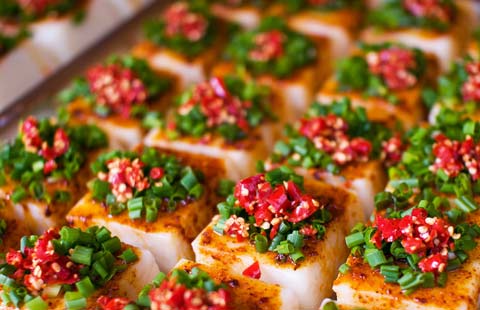
China's top 10 foodie cities |
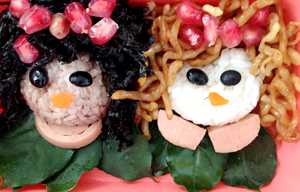
Cute boxed meals |
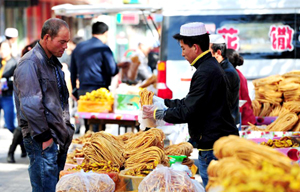
Muslims greet annual festival of Eid al-Adha in Yinchuan |
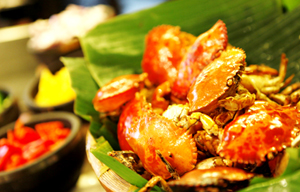
Cafe Noir hosts Singapore food festival |

7 hot drinks to make Christmas merrier |

Sleep in a snow hotel |

Pastry Paradise exhibition opens in London |
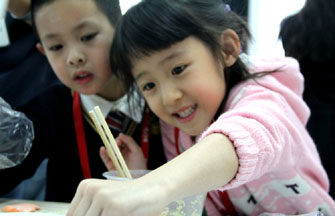
Kids Rock the Kitchen with Chopsticks & Beyond |